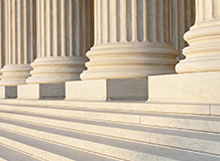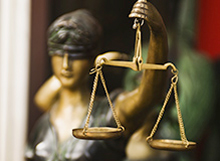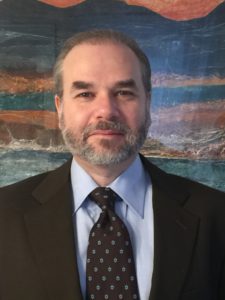U.S. Attorney Witnesses
"U.S. Attorney Witnesses" refers to individuals who provide information to a United States Attorney's Office (a "USAO"). United States Attorneys' Offices are part of the United States Department of Justice (the "DOJ"). Sometimes people refer to a U.S. Attorney's Office as the DOJ. Most often, though, "DOJ" is used to refer to criminal investigations or prosecutions brought specifically by the Department of Justice's main office in Washington, D.C., as opposed to those brought by the U.S. Attorney's Offices located in each State.

Sometimes people reach out to a U.S. Attorney's Office on their own because they have information about a crime that they think the USAO should know about. Other times, the USAO may ask someone to talk to it over the telephone or to come in to the USAO's offices to talk about something. This request may be made by a lawyer who works for the USAO, often called an Assistant United States Attorney, or it may be made by an agent of the Federal Bureau of Investigation (the "FBI") or some other federal investigatory agency that is working with the Assistant U.S. Attorney.
"U.S. Attorney witness" usually means someone who may have information about a federal crime. But that is not always the case. Sometimes the USAO thinks a person might have some information, but it is not certain. For example, this sometimes happens when the USAO or the FBI is investigating something and wants to talk to everyone who worked in a company, office, or department to find out who, if anyone, may know something about what the USAO or FBI thinks happened.
A U.S. Attorney witness may be a person who did nothing wrong but who came across some information that one or more other people may have commited a crime. A U.S. Attorney witness may also be someone who may have committed or helped others to commit a crime; such people are sometimes referred to as "subjects" or "targets" of an investigation. A "subject" of an investigation usually means someone who the USAO or the FBI thinks may or may not have committed a crime, but they cannot be certain without more information. "Target" is usually used to refer to someone who the USAO or FBI thinks actually did commit a crime, based on information that they have at the time. Someone who admits that they did something wrong and agrees to help the USAO or the FBI in their investigation of the crime is often referred to as a "cooperating witness". All of these people are technically U.S. Attorney witnesses or potential U.S. Attorney witnesses.
Over the course of a USAO or FBI investigation, someone who the USAO or FBI initially believe may be just a witness may come to be viewed as a "subject" or a "target". Likewise, someone who the USAO or FBI initially believe may be a potential "subject" or "target" may come to be viewed as just an innocent witness.
When someone talks to the USAO, the conversation may be done informally over the telephone or in the U.S. Attorney's offices, and one or more Assistant United States Attorneys or FBI agents (or agents of some other federal agency) will often take handwritten notes of what is said. While the witness is not sworn in under oath to tell the truth, and the meeting is not recorded word-for-word in an official transcript, it may be a separate crime in-and-of-itself to knowingly make a false statement to an Asssistant United States Attorney or FBI agent during that conversation.
If you would like information about The Pickholz Law Offices' experience representing U.S. Attorney Witnesses, or those who believe that they may become a U.S. Attorney Witness, please feel free to click on the "Our Cases & Results" link and the other links on the right side of this page.










